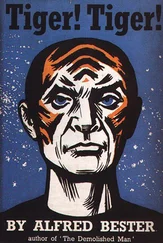In his youth, he’d been more demonstrative. He’d come to Islam in his early teens, inspired by a very conservative imam whose preachings had eventually gotten him into trouble, but who had inspired a raft of followers and spiritual children. The Emir was merely the cleverest of the lot. He, too, had spoken his mind, and as a result been sent off to England for his education – really to get him out of the country – but in England, in addition to learning the ways of the world, he’d been exposed to something entirely alien. Freedom of speech and expression. In London, it is mostly celebrated at Hyde Park Corner, a tradition of spleen venting that dates back hundred of years, sort of a safety valve for the British population, and which, like a safety valve, merely vents troublesome thoughts into the air without letting them take much hold anywhere. Had he gone to America, it would have been the radical press. But what had struck him as hard as the arrival of a spaceship from Mars was that people were able to challenge the government in any terms they pleased. He’d grown up in one of the world’s last absolute monarchies, where the very soil of the nation belonged to the king, and the law was what the reigning monarch said it was – subject in name if not in substance to the Koran and the Shar’ia, the Islamic legal traditions which dated back to the Prophet himself. These laws were fair – or at least consistent – but very stern indeed. The problem was that not everyone agreed about the words of the Koran, and therefore about how the Shar’ia applied to the physical world. Islam had no pope, no real philosophical hierarchy as other religions understood the concept, and therefore no cohesive standard of application to reality. The Shi’a and the Sunni were often – always – at each other’s throats over that question, and even within Sunni Islam, the Wahabis – the principal sect of the Kingdom – adhered to a stern belief system indeed. But for the Emir this very apparent weakness of Islam was its most useful attribute. One only had to convert a few individual Muslims to his particular belief system, which was remarkably easy, since you didn’t have to go looking for those people. They identified themselves virtually to the point of advertising their identities. And most of them were people educated in Europe or America, where their foreign origin forced them to cleave together just to maintain a comfortable intellectual place of self-identity, and so they built upon a foundation of outsiderness that had led many of them to a revolutionary ethos. That was particularly useful, since along the way they’d acquired a knowledge of the enemy’s culture that was vital in targeting his weaknesses. The religious conversions of these people had largely been pre installed, as it were. After that, it was just a matter of identifying their objects of hatred – that is, the people to be blamed for their youthful discontent – and then deciding how to do away with their self-generated enemies, one at a time, or as a grand coup de main, which appealed to their sense of drama, if not their scant understanding of reality.
And at the end of it, the Emir, as his associates had taken to calling him, would be the new Mahdi, the ultimate arbiter of all of the global Islamic movement. The intrareligious disputes (Sunnis and Shi’a, for example) he planned to handle through a sweeping fatwa, or religious pronouncement of tolerance – that would look admirable even to his enemies. And, after all, weren’t there a hundred or more Christian sects who had largely ended their own internal strife? He could even reserve to himself tolerance of the Jews, though he would have to save that for later years, after he had settled into the seat of ultimate power, probably with a palace of suitable humility outside the city of Mecca. Humility was a useful virtue for the head of a religious movement, for as the pagan Thucydides had proclaimed, even before the Prophet, of all manifestations of power, that which most impresses men is restraint.
It was the tallest of orders, the thing he wanted to accomplish. It would require time and patience, and its success was hardly guaranteed. It was his misfortune that he had to depend upon zealots, each of whom had a brain, and the consequent strong opinions. Such people could, conceivably, turn on him and seek to replace him with religious outlooks of their own. They might even believe their own concepts – they might be true zealots, as the Prophet Mohammed had been, but Mohammed, blessings and peace be upon him, had been the most honorable of men, and had fought a good and honorable fight against pagan idolaters, while his own effort was mainly within the community of Faithful. Was he, then, an honorable man? A difficult question. But didn’t Islam need to be brought into the current world, and not remain trapped in antiquity? Did Allah desire His Faithful to be prisoners of the seventh century? Certainly not. Islam had once been the center of human scholarship, a religion of advancement and learning that had, sadly, lost its way at the hands of the great Khan, and then been oppressed by the infidels of the West. The Emir did believe in the Holy Koran, and the teachings of the imans, but he was not blind to the world around him. Nor was he blind to the facts of human existence. Those who had power guarded it jealously, and religion had little to do with that, because power was a narcotic all its own. And people needed something – preferably someone – to follow if they were to advance. Freedom, as the Europeans and Americans understood the concept, was too chaotic – he’d learned that at Hyde Park Corner, too. There had to be order. He was the man to provide it.
So, Uda bin Sali was dead, he thought, taking a sip of juice. A great misfortune for Uda, but a minor irritation to the Organization. The Organization had access to, if not a sea of money, then a number of comfortably large lakes, a small one of which Uda had managed. A glass of orange juice had fallen off the table, but thankfully it had not stained the carpet under it. It required no action on his part, even at second hand.
“Ahmed, this is sad news, but not a matter of great importance to us. No action need be taken.”
“It shall be as you say,” Ahmed Musa Matwalli responded respectfully. He killed his phone. It was a cloned phone, bought from a street thief for that one purpose, and then he tossed it into the river Tevere – the Tiber – off the Ponte Sant’Angelo. It was a standard security measure for speaking with the great commander of the Organization, whose identity was known to but a few, all of whom were among the most faithful of the Believers. At the higher echelons, security was tight. They all studied various manuals for intelligence officers. The best had been bought from a former KGB officer, who had died after the sale, for so it had been written. Its rules were simple and clear, and they did not deviate from them a dot. Others had been careless, and they’d all paid for their foolishness. The former USSR had been a hated enemy, but its minions had never been fools. Only unbelievers. America, the Great Satan, had done the entire world a favor by destroying that abortion of a nation. They’d done it only for their own benefit, of course, but that, too, must have been written by the Hand of God, because it had also served the interests of the Faithful, for what man could plot better than Allah Himself?
Chapter 19
BEER AND HOMICIDE
THE FLIGHTinto Munich was silky smooth. German customs were formal but efficient, and a Mercedes-Benz cab took them to the Hotel Bayerischer.
Their current subject was somebody named Anas Ali Atef, reportedly an Egyptian by nationality, and a civil engineer by education, if not by profession. Five feet nine inches or so, 145 pounds, clean-shaven. Black hair and dark brown eyes, supposed to be skilled at unarmed combat and a good man with a gun, if he had one. He was thought to be a courier for the opposition, and also worked to recruit talent – one of whom, for certain, had been shot dead in Des Moines, Iowa. They had an address and a photo on their laptops. He drove an Audi TT sports car, painted battleship gray. They even had the tag number. Problem: He was living with a German national named Trudl Heinz, and was supposedly in love with her. There was a photo of her, too. Not exactly a Victoria’s Secret model, but not a skank, either – brown hair and blue eyes, five feet three inches, 120 pounds. Cute smile. Too bad, Dominic thought, that she had questionable taste in men, but that was not his problem.
Читать дальше









